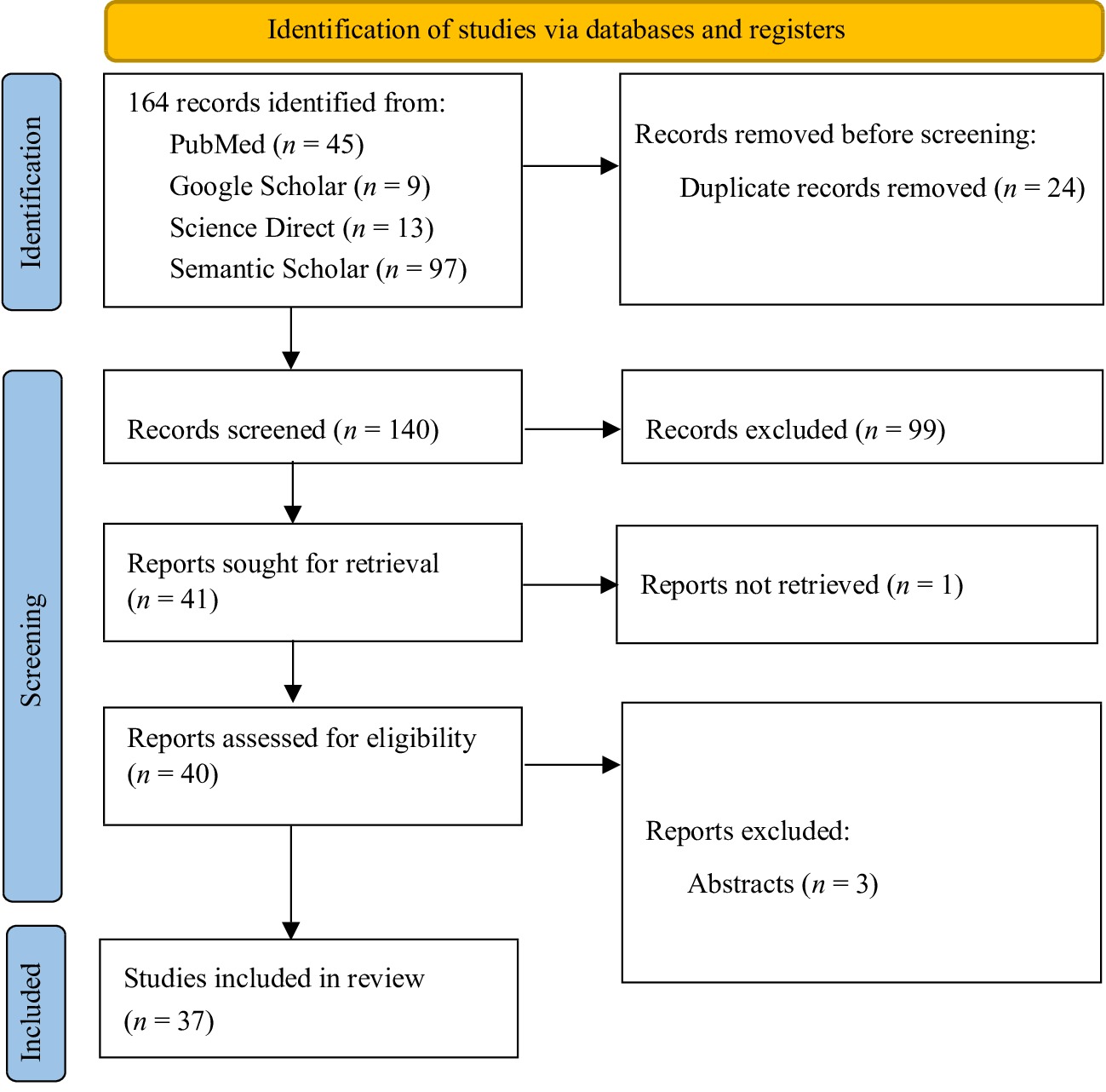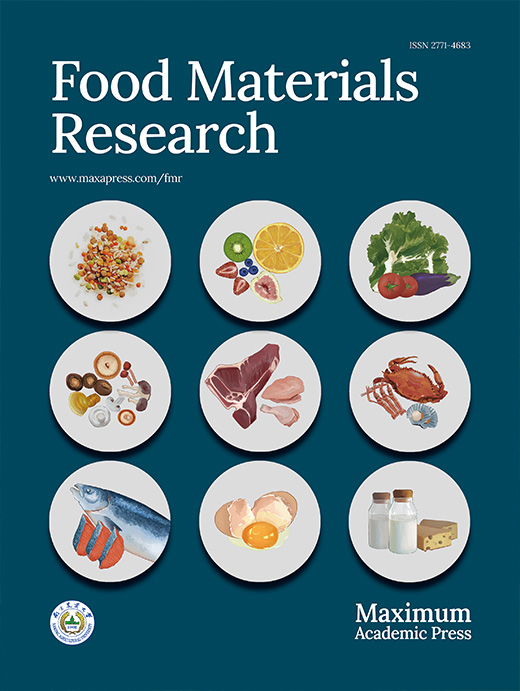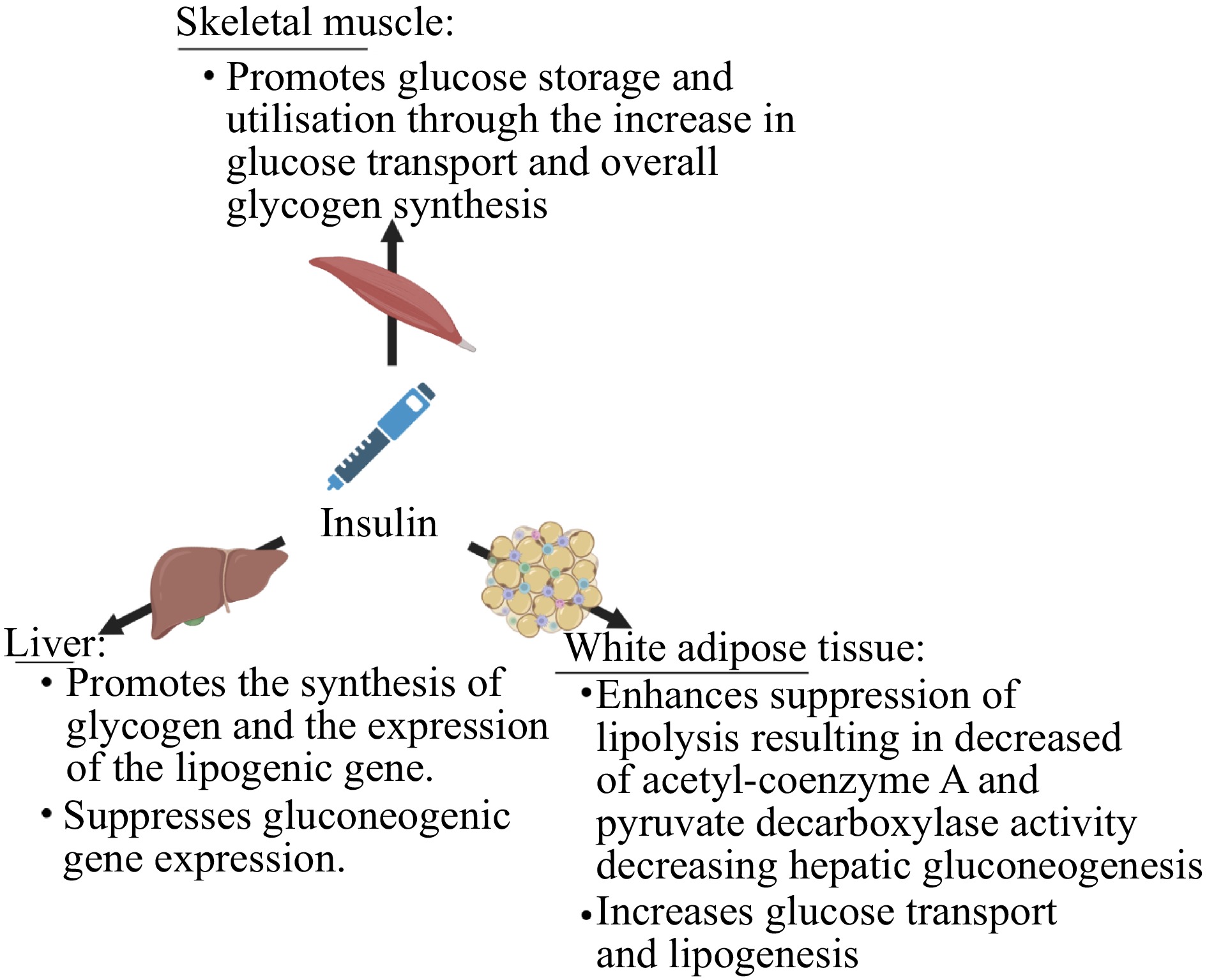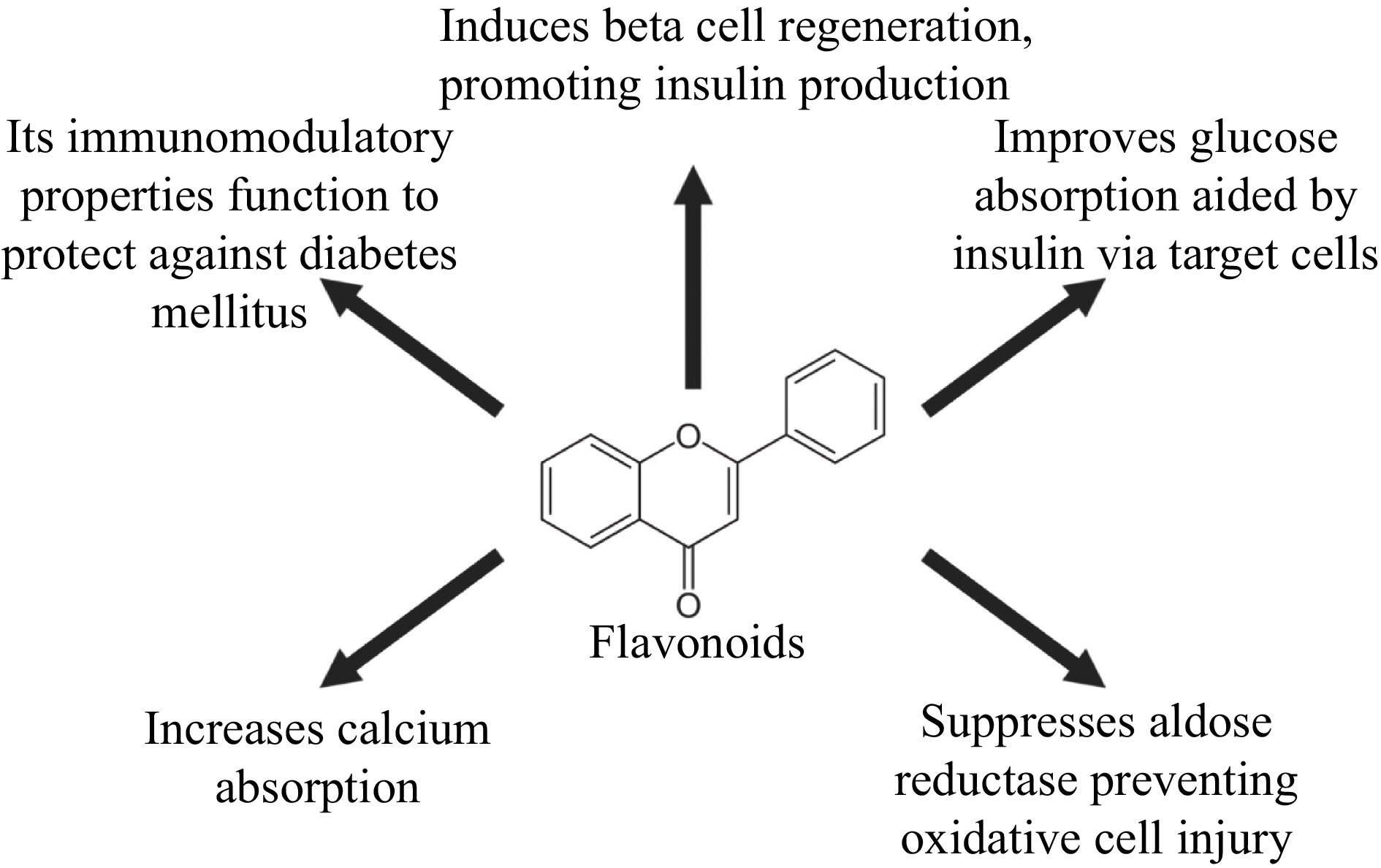-
Persea americana Mill belonging to the Lauraceae family is a native avocado fruit to Central America and Mexico. It has gained importance as an alternative medicine due to its rich phytochemistry and potential therapeutic benefits against diabetes, cancer, cardiovascular diseases and reproductive disturbances, amongst other disorders. This subtropical fruit is composed of the pulp which is mostly eaten fresh, the peel, seed and defatted part are commonly discarded[1,2]. A medium-sized avocado (about 136 g) is composed of approximately 72% water with the remaining 28% being fats, dietary fibre, minerals and vitamins[2,3]. Moreover, avocados' phytoactive composition include, polyphenols (flavonoids, triterpenoids, alkaloids, saponins, and tannins), and vitamins (A, C, and E)[4,5]. These components are capable of altering lipid and cholesterol metabolism[5]. Avocado extracts may exert numerous effects on the body; its properties were identified to lower blood pressure[6], blood glucose and cholesterol levels[7], increase in animal reproductive performance[7,8], and cardio-protective affects[9]. An increasing body of literature is demonstrating that avocados have significant effects on hormones. Yet, studies comprehensively reviewing the ramifications of avocado fruit and/or product consumption on hormonal homeostasis are scarce. Throughout this systemic review the phytochemicals in avocados will be explored to depict their influence on hormone levels in the body and how they may be applied in the medical field together with their pharmacological safety.
-
This systematic review was generated using the Systematic Review and Meta-analyses (PRISMA) statement for reporting literature searches in systematic reviews[10].
Study identification and selection
-
PubMed, Google Scholar, Science Direct and Semantic Scholar databases were searched for relevant articles published until week-10 2023 in English. Combinations of the following keywords were used to develop a database-specific search strategy: [('avocados' OR 'avocado extract') AND ('hormones')]. Inclusion criteria used were 1) full length studies which discussed the effect of avocado fruit/seed and or oil/extract on; 2) hormonal homeostasis in; 3) animal models and humans. Reviews discussing the phytochemical composition and overall effect of avocados on human health were also considered. Grey literature was not searched to develop this study.
Study selection
-
One hundred and sixty four tentative studies were identified, with 24 potential records being duplicates. Ninety nine studies were excluded following title and abstract screening using the pre-defined inclusion criteria. Thus, 40 reports were sought for retrieval and their full text was assessed in detail for eligibility. Among these, three studies were excluded following full-text review, resulting in a total of 37 studies included in this systematic review (Fig. 1)[1−6,8,9,11−39].

Figure 1.
PRISMA-S flowchart[10].
-
Obesity is defined as having a body mass index (BMI) equal to or above 30, and it has become a global epidemic posing a high burden on health care systems[40].
Dysregulation of adipokine hormones, such as leptin, resistin and adiponectin, contribute to the development of insulin resistance observed in obesity. Because of the great increase in adipose which occurs during obesity, adipokine levels are dysregulated. Adiponectin levels are decreased resulting in decreased insulting sensitivity. Contrarily, in obesogenic states leptin levels increase, which would resulting in insulin resistance[41].
Incorporating Hass avocados in lunch meals for healthy overweight adults led to a significant increase in meal satisfaction (23%) and decrease in appetite (28%) over a 5-h period, with a greater effect observed during the 3-h post-prandial period (26% increase in meal satisfaction and 40% decrease in hunger)[18]. The satiety-promoting effects of avocado consumption are attributed to the increased caloric intake, the presence of D-manno-heptulose (which inhibits hexokinase and reduces glycolysis, aiding in managing blood glucose and weight), the dietary fiber and fat content, and the promotion of fasting GLP-1 and post-prandial ghrelin secretion by D-manno-hepatulose[3,15,17,35,42,43]. Incorporating avocados in the diet can aid in weight management by promoting satiety without ingesting a bulky meal, while reducing total caloric intake[35]. Fatty acids produced through dietary fibre fermentation, in conjunction with the fatty acids naturally present in avocado fruit, furthe promote satiety through the induction of protein G receptors coupled to the colonocyte membrane, resulting in the release of cholecystokinin, peptide YY, and GLP-1, while reducing ghrelin levels[35]. Such findings are supported by additional studies, including Zhu et al.'s 2019 study wherein 31 overweight/obese adults reported greater meal satisfaction and satiety after consuming meals with avocado-derived fat and fibre[3]. An increase in GLP-1 levels brought about by avocados stimulates pancreatic beta cells' insulin production, largely brought about by the fruit's fat content acting as a potent stimulus for the release of GIP. Evidence suggests that while GIP production is not hindered in obesity, avocados increase its production. Through the interplay of incretin hormones, insulin resistance can be combated by a natural drug derived from an avocado extract[43].
Moreover, as shown in Fig. 2, insulin plays a critical role in ensuring glucose homeostasis. Yet, as a consequence of decreased insulin sensitivity, glucose homeostasis is often dysregulated in obesity[44].
Ethanolic avocado extract was demonstrated to induce an anti-hyperglycaemic effect on streptozotocin (STZ) induced diabetic rats. The overall result showed a stimulatory effect on the remnant and/or regenerating beta cells in the islets of Langerhans. Consequently, through this stimulation, insulin levels increased. However, it was noted that this stimulatory effect of the extract is proportional to the amount of beta cell damage. In addition, the hyperglycaemic state leads to dysfunctional protein metabolism leading to decreased protein production and enhanced hepatic gluconeogenesis and muscle proteolysis[29]. STZ-diabetic induced rats demonstrated a prominent inhibition in proteolysis initiated by insulin deficiency in hyperglycaemia[39,48]. Ethanolic avocado extract also recovered protein levels to near normal establishing that the extract acted similarly to the medication, gliclazide, that is commonly used to treat diabetes[29,39]. The anti-hyperglycaemic effect of the avocado extract is further supported since ethanolic avocado extract led to decreased levels of glycosylated haemoglobin (HbA1c) which is an indicator for chronic glycaemic control. Since HbA1c is directly proportional to the levels of blood glucose, a decreased HbA1c upon extract introduction suggests a reduction in blood glucose levels and thus enhanced glycaemic control[3,29,39,49].
Obese individuals have excessive amounts of adipose tissue (AT). AT is responsible for the production of a maximum of about one third of circulating interleukin–6 (IL-6) in the body, which is known to stimulate the expression of suppressor of cytokine signalling (SOCS) 3 proteins which impedes insulin sensitivity[50,51]. Some studies have reported that administrating avocado soybean unsaponifiables (ASU) to chondrocyte cultures significantly reduced circulating cytokines like IL-6 and IL-8[16,36]. However, Martínez-Abundis et al. noted that in their investigation ASU had not significantly reduced IL-6 levels but insulin levels were increased. However, the authors proposed that the observed findings may be due to highly selected and small population size which may have limited their study. The authors also hypothesised that the concentration of IL-6 produced by the adipose tissue was not significant enough to be completely neutralised by the ASU[16].
Additionally, in AT the peroxisome proliferator activated receptor–γ (PPAR–γ) levels , an important lipogenic transcription factor for FFA, insulin secretion and glucose utilisation[52], were significantly increased in rats subjected to experimental hyperlipidaemia and obesogenic states fed hydro-alcoholic fruit extract of P.americana (HAEPA) avocados[23]. The increase in PPAR–γ in turn improved insulin sensitivity[23].
Furthermore, flavonoids are well known for effects on glucose homeostasis (Fig. 3). Myricetin, a flavonoid abundantly present the aqueous extract of P. americana (AEPAS)[32], has been demonstrated to improve the function of damaged beta cells while also promoting the synthesis insulin by beta cells. Myricetin together with the phenol , gallic acid, increase glucose absorption, efficiency of the glycolytic pathway and insulin sensitisation[32]. In addition, other tannins, saponins and flavonoids present within avocados protect the pancreas from oxidative stress. Their accumulative suppression of the sodium glucose transporter 1 protein further promotes their collective blood glucose-lowering properties[2].
Moreover, avocadoes are rich in linoleic acid which may suppress the enzymatic activity of protein tyrosine phosphatases (PTPs) 1, 2, 9 and 11 in-vitro. This is crucial since PTP1, 2, 9, and 11 are known to impair insulin signalling leading to insulin resistance and thus diabetes development. PTP1 is specifically known to hinder proper insulin function. Thus, through PTPs inhibition by linoleic acid, insulin function and signalling is improved[54].
Avocado's effect on male and reproductive hormones
-
Avocado extract is viewed as a traditional female contraceptive and sterilizer and source of male potency in a number of south American countries[9]. Such 'folklore' medicine is increasingly being investigated by modern-day research. Silva et al. illustrated that an avocado oil-based diet for a total of 42 d induced a testosterone decreased levels and 4-fold increase in rodent estradiol blood concentration, which may lead to an increase in male fertility. However, no concrete physiological pathway was elucidated[11]. The rodents also exhibited from decreased serum triacylglycerols (reduced by 21%), VLDL (reduced by 20%), LDL (reduced by 78%), total cholesterol (reduced by 12%), total protein (reduced by 24%), albumin (reduced by 26%), urea (reduced by 14%), and creatinine (reduced by 33%), as well as an increase in HDL levels (increased by 7%). Prager et al.[38] further demonstrated that beta-sitosterol, which is present in avocado oil, has anti-androgenic effects by modulating the 5-alpha-reductase enzyme, which may confound results collated by Silva et al.[11], warranting further research to clarify the effect of avocados on male fertility.
Ethanolic avocado extracts may induce various hormonal changes in female rats and guinea pigs. These changes included the inhibition of uterine endometrial hyperplasia proliferation, prolonging prolongation of the esters phase; increase estradiol and LH levels which act to protects the uterus from oxidative stress. Moreover, ethanolic avocado extracts was demonstrated to induce endometrial implant regression and recovers the ovarian dynamics[31]. Shafe et al. administered avocado extract to male and female Wistar rats for 57 consecutive days, and found that both male and female Wistar rats were more fertile when treated with avocado extract. While avocado extract can enhance sperm count in male Wistar rats, it also slightly decreases sperm motility and viability. The increased release of FSH and LH may explain the rise in testosterone level observed at a high concentration exposure of avocado extract in male wistar rats, thus improving fertility[12]. However, these findings contradict results regarding avocado's effect on testosterone obtained by Silva et al., necessitating further research to consolidate the precise effects of avocados on male fertility[11].
Minko Essono et al.[31] and Shafe et al.[12] did not elucidate the specific effect of ethanolic avocado extract on physiological cascades which resulted in the observed alteration of reproductive hormones. However a recent study demonstrated that FSH decreases in the first 30 d of exposure to avocado extracts in a dosedependent manner and starts raising after the 60−90 d; together with progesterone[9]. This suggests that the avocado extract may contain some bioactive constituents which could be the culprit of altering the female hormonal profile and hence can distort reproductive functions. This warrants advising women trying to conceive to exercise caution regarding avocado consumption[9].
Interestingly, Orabueze et al. also stated that avocado extract may be beneficial in managing female reproductive hormonal health issues, strictly depending on the dose, age and period of estrous cycle of patients. Its may be possible to utilise avocado's dose-dependent use in management of spontaneous abortion, as contraceptive, hormonal imbalance and fertility agent may be subjected to further studies[9], but extensive further studies are required to consolidate this hypothesis.
The avocado extract's anti-proliferative effect may also act to increase the effectiveness ofTamoxifen, a well-known selective oestrogen receptor modulator that is frequently prescribed to treat breast cancer in premenopausal women and men[34]. Certain breast cancer cells rely on oestrogen hormone to grow, this is known as an oestrogen receptor positive breast cancer. Tamoxifen is utilised as an oestrogen receptor blocker, therefore diminishing breast cancer growth However tamoxifen use over a long period of time has been linked to an elevated risk of endometrial hyperplasia and even endometrial cancer[55]. Recent studies have shown that the chemo-preventive benefits of tamoxifen can be increased by combining it with substances that have anti-proliferative activities. Avocado ethanol extract can attenuate the proliferative effects by lowering uterine epithelial height. Moreover, increased uterine malondialdehyde and antioxidant enzyme levels were linked to this anti-proliferative impact[34].
The avocado's anti-proliferative activity may also be beneficial for individuals suffering from endometriosis. Endometriosis is an estrogen-dependent condition which involves endometrial-like tissue developing in locations where it shouldn't, such as in the pelvis and ovaries. Due to hormonal regulation, this tissue that resembles endometrium will thicken, degrade, and bleed in accordance with the menstrual cycle. However, since this tissue cannot leave the body, it becomes trapped and may potentially cause menstrual pain, cysts, adhesions, and scarring. The study by Minko Essono et al. involved the utilisation of wistar rats, in order to mimic endometriosis, uterine fragments were grafted into the peritoneum of female rats. The rats received avocado extract over a period of 7 d. The endometrial height diminished, the number of ovarian follicles and corpora lutea increased, and the number of luteinized unruptured follicles reduced after autopsy and histological results, suggesting that avocado extract's anti-proliferative properties may be employed to manage endometriosis[31].
Avocado's effect on other hormone physiological functions
-
Salazar et al. demonstrated that feeding Wistar rats a diet high in avocado oil for two weeks increased their angiotensin-II (Ang II-induced) blood pressure response and altered the fatty acid content of their cardiac and renal microsomes[19]. This indicated that avocado oil could change the structure and function of the vessel membranes , and the synthesis of prostaglandins, which are important in the control of vascular function, by increasing the amount of oleic acid in the heart microsomes.
Hamouda et al. enrolled 80 adult Sprague-Dawely rats and utilized carbon tetrachloride to induce organ damage in the rats then used a subgroup and treated them with avocado extract[13]. The subgroup who ingested the avocado extract benefited from nitric oxide, malondialdehyde, serum aspartate aminotransferase, alanine aminotransferase, total bilirubin, total cholesterol, triglycerides, high-density lipoprotein, low-density lipoprotein, thyroid function test, thyroid stimulating hormone, triiodothyronine and thyroxine improvement; compared to the controls[13]. Al-Okbi et al. identified that beta-sitosterol (a plant sterol) which found in avocado, can improve kidney function. Rats injected with cisplatin rats, which is known to cause kidney dysfunction and nephrotoxicity, demonstrated reductions in nephrotoxicity, chromosomal abnormalities, and aberrant sperm production[56]. Other possible benefits of avocado consumption include the improvement of blood pressure[6] and reversal of diabetes induced organ damage[37]. The consumption of avocado oil may also potentially protect the liver against hepatic neoplasms and other chemically induced cancers[57].
Pharmacological safety of avocado extracts
-
Avocados have a proven effect on digestive and reproductive hormones (Table 1). Thus, it is important to consider the pharmacological safety of this fruit. Any extracts obtained from avocados for the use of improving glycaemic control and insulin sensitivity in obese or diabetic individuals can be considered relatively safe with close to minimal or insignificant side effects. Martínez-Abundis et al. described that no adverse effects had occurred during their study when 300 mg of ASU was administered to obese patients over the course of 3 months[16]. The main side effect noted was oesophageal regurgitation which lessened when the ASU capsule was taken with a meal. Monika & Geetha reported that an acute toxicity profile in rats subjected to experimental hyperlipidaemia and obesity occurred when 2,000 mg/kg of HAEPA was administered, however no toxic symptoms were noted[22]. Similarly, Rao & Adinew reported that no changes in haematological parameters were noted on administering P.americana fruit extract to rats[11]. Additionally, introducing doses of the extract as high as 1,000 mg/kg body weight revealed not toxic symptoms or adverse reactions. It was also noted that the oral 50% - lethal dose of the extract was beyond 15,000 mg/kg body weight.
Table 1. Summary of known avocado effects on digestive and reproductive hormones.
-
This review provides an in-depth assessment of published literature investigating the effects of avocados on human hormonal physiology. Of note, most included articles studied the effects of avocado fruit/seed or extract on digestive and reproductive hormones. Avocados may increase insulin sensitivity and achieve post-prandial satiety more rapidly. Moreover, avocados can decrease female fertility, while having pronounced opposite effects on male fertility. This review underscores the importance the effects of avocados on digestive and reproductive hormonal physiology, however further randomised controlled studies are required to consolidate avocado's effects on human hormonal physiology, to fully understand how avocados may be used to manipulate huma physiology in diseases states. Moreover, with increasing pre-clinical evidence demonstrating avocado products' potential affects in ameliorating hormonal disorders, clinical trials are warranted to assess avocados suitable as alternative mediciation.
-
The authors declare that they have no conflict of interest.
-
These authors contributed equally: Andrea Cuschieri, Emma Camilleri, Eleonore Cricchiola
- Copyright: © 2023 by the author(s). Published by Maximum Academic Press on behalf of Nanjing Agricultural University. This article is an open access article distributed under Creative Commons Attribution License (CC BY 4.0), visit https://creativecommons.org/licenses/by/4.0/.
-
About this article
Cite this article
Cuschieri A, Camilleri E, Cricchiola E, Blundell R. 2023. Avocados' effect on hormonal physiology: a comprehensive narrative review. Food Materials Research 3:13 doi: 10.48130/FMR-2023-0013
Avocados' effect on hormonal physiology: a comprehensive narrative review
- Received: 25 March 2023
- Accepted: 22 May 2023
- Published online: 28 June 2023
Abstract: Avocados have gained increase importance as potent alternative remedies due to its rich phytochemistry and potential therapeutic benefits against a host of human disorders. Of note, an increasing body of literature is demonstrating the fruit's extensive effects against hormones. Yet, reviews which comprehensively discuss the effects of avocado fruit and/or product consumption on hormonal homeostasis are scarce. Through a systemic literature search, the phytochemicals in avocados will be explored to depict their influence on hormone levels in the body and how they may be applied in the medical field together with their pharmacological safety. This review provides an in-depth assessment of published literature investigating the effects of avocados on human hormonal physiology. Of note, most included articles studied the effects of avocado fruit/seed or extract on digestive and reproductive hormones. Avocados may increase insulin sensitivity and achieve post-prandial satiety more rapidly. Moreover, avocados can decrease female fertility, while having pronounced opposite effects on male fertility. This review underscores the importance the effects of avocados on digestive and reproductive hormonal physiology, however further randomised controlled studies are required to consolidate avocado’s effects on human hormonal physiology.
-
Key words:
- Avocados /
- hormones /
- fertility /
- insulin /
- digestive system /
- reproductive system














